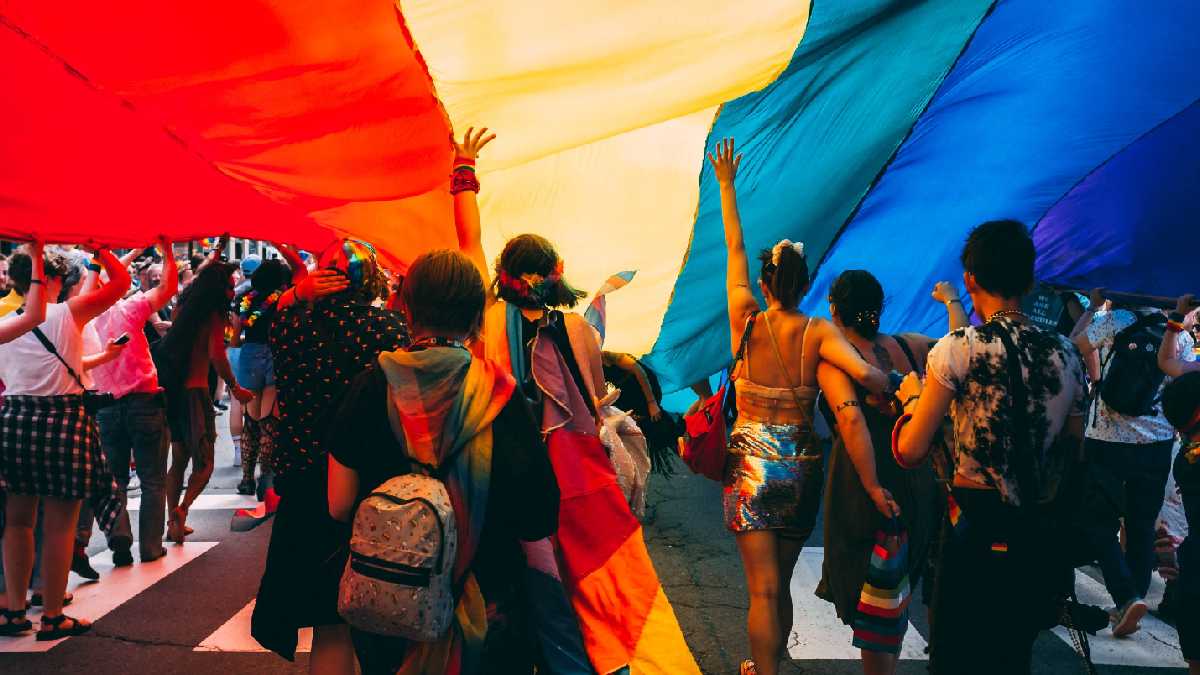
New Research Teaches Us The Right Way To Support The LBGT Community
Here's what true inclusivity and equality might look like through the eyes of LGBT individuals.

By Mark Travers, Ph.D. | May 27, 2023
A new study published in the Journal of Personality and Social Psychology takes a long overdue look at what it means to be and act like a true ally through the LGBT lens.
According to lead author Jacqueline M. Chen, professor at the University of Utah, the current ways of our society put LGBT people at higher risk for serious mental health issues than their straight, cis-gender counterparts. Sincere and resourceful allies can help mitigate the negative effects of discrimination, humiliation, and bullying experienced by the marginalized community.
"Interestingly, despite the fact that allyship behaviors are ostensibly intended to benefit the members of the LGBT community, it is typically a non-LGBT person who self-designates as an ally, without any particular endorsement or nomination from LGBT community members," says Chen. "Because allyship is intended to benefit LGBT people, it seems important to determine on what basis LGBT individuals perceive others to be allies."
Over the course of four studies, researchers recruited LGBT people and collected open-ended responses about their perception of allyship to build and validate an allyship scale. They even collected experiences of LGBT individuals living with members outside their community to explore their impact on interpersonal relationships and the individual's overall well-being.
The research defined three crucial components of allyship:
- Acceptance (being genuine and non-prejudiced)
- Action (taking visible action to stand up against acts of discrimination and inequality)
- Humility (being honest and open to acknowledging one's shortcomings while identifying areas of improvement)
Furthermore, they also explained how allyship is different from just showing support to someone. Unlike offering general support and simply showing up in a moment of need, an ally would go a step further to really show their solidarity.
"Being a good ally is about affirming the person's sexual or gender identity, demonstrating that you accept and validate this aspect of the person, taking actions to reduce any personal biases that you might have, and even speaking up to stop systemic biases such as discriminatory policies as well," defines Chen.
This can happen in two ways:
- Directly (like demonstrating against anti-LGBT government laws or working towards changing workplace policies that promote bias)
- Indirectly (enabling LGBT individuals to stand up for themselves by openly identifying as allies and showcasing acceptance)
Not only is this seen to improve mental health, self-esteem, confidence, overall well-being and life satisfaction of LGBT people, it also has a significant impact on their relationships with others. The quality of allyship is directly related to the perceived quality of the specific relationship.
Here, the researchers uncovered a bitter truth. While friends become chosen family with whom LGBT individuals willingly share their truth and their lives with, families related by blood still show the need to be more educated about the possible detrimental impact they can have because of their non-allyship.
Parents of LGBT children would especially benefit from seeking out advice from counselors that could help them learn the ways of allyship. It could help protect children that don't fall into conventional norms from feeling even more alienated than they already do.
Chen reminds us that, like any other relationship, allyship too has many faces and is a journey of continuous growth and learning rather than a destination.
"One's allyship is not permanently earned, it is something we should work to maintain and improve over time," she explains.
A full interview with Jacqueline Chen discussing her new research can be found here: What does it take to be a true LGBT ally?
